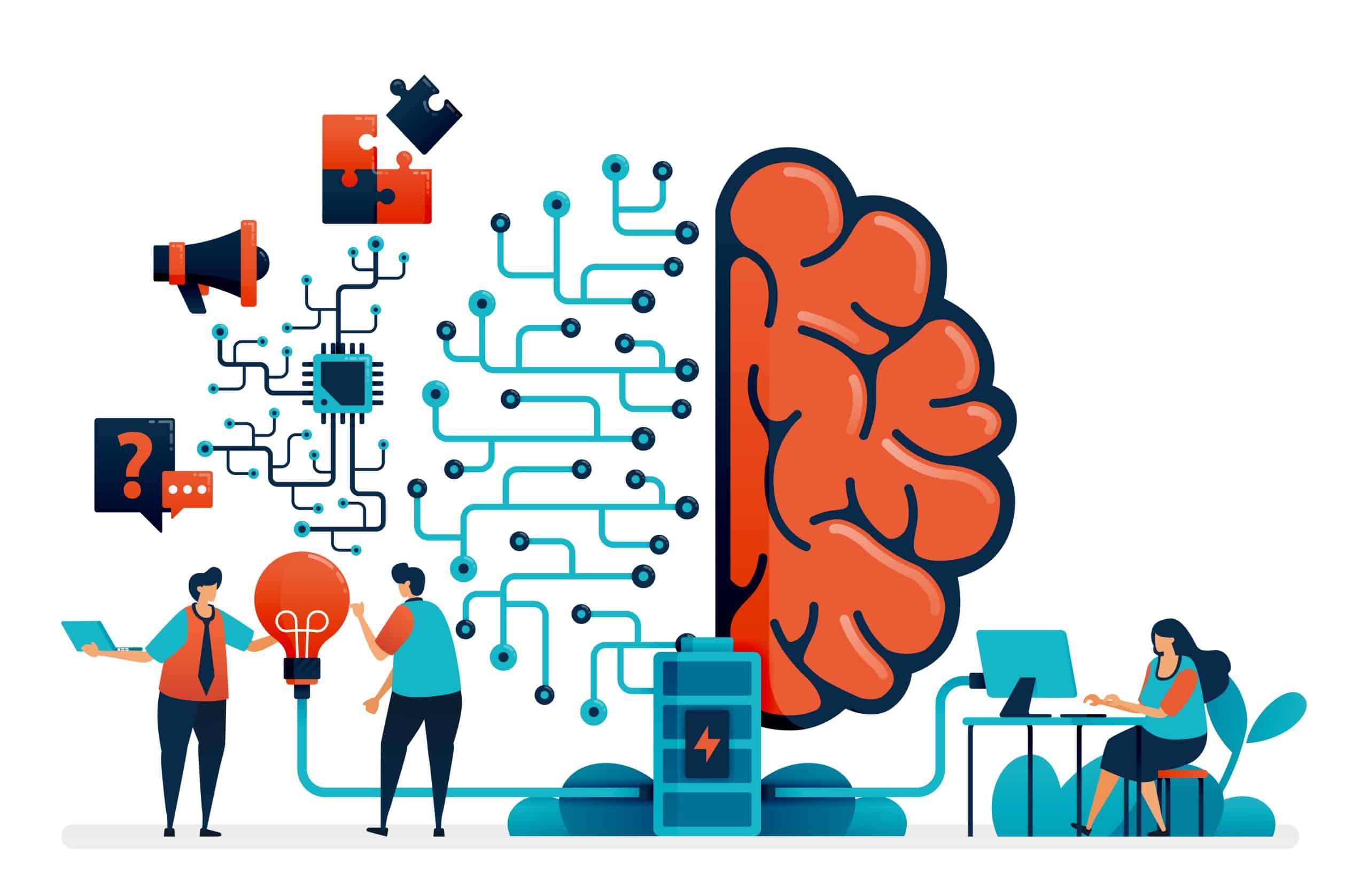- 🔄 Digital marketing focuses on relationship-based marketing in 2024.
- 🎯 Personalization and follow-up strategies are essential for building trust with customers.
- 📉 Traditional broad, generic marketing campaigns are ineffective.
- 🤖 AI and E-E-A-T principles are crucial for modern SEO and content creation.
- 💼 Refreshing traditional B2B strategies involves targeted, unique content and campaigns.
- 🎥 Diversifying marketing channels including video content and social commerce boosts engagement.
- 🌐 Omni-channel marketing is key to delivering a seamless customer experience.
- 🍪 Navigating cookie consent challenges is vital for accurate data and analytics.
- 🔎 SEO must adapt to modern standards, focusing on high-quality, user-friendly content.
- 📉 Outdated methods like keyword stuffing and low-quality backlinks need to be abandoned.
- 🚀 Advanced tracking technologies are necessary with the elimination of cookies by 2025.
- 🛠️ Creating free tools can serve as effective lead-generation strategies.
- 📱 Short-form and interactive content engage audiences more effectively than long-form posts.
- 😊 User-generated content builds authenticity and community trust.
- 🥇 Thought leadership positions brands as authorities and drives trust.
- 👥 Influencer marketing helps in creating authentic connections with audiences.
- 🤝 Adopting multi-channel marketing strategies increases reach and engagement.
- 📊 Leveraging data for personalized marketing is crucial, especially with AI.
- 🔗 Personal branding on LinkedIn drives professional networking and business growth.
- 👁️🗨️ Repurposing content for multiple platforms maximizes its value and reach.
- 💡 Adopting visionary, service-led marketing builds genuine connections.
- 🔓 Moving from third-party to first-party data collection ensures privacy and personalization.
- 📢 Building authentic social media presences accurately reflect brand values.
In the rapidly evolving landscape of digital marketing, staying ahead of trends and technologies is imperative for businesses seeking sustainable growth and success. As we head into 2024, the emphasis is firmly on relationship-based marketing, leveraging AI, and personalizing customer experiences. Let’s dive into the key strategies that digital marketers should adopt to thrive in this dynamic environment.
Relationship-Based Marketing: The Core of 2024
As digital marketing continues to evolve, creating and nurturing relationships with customers has become a cornerstone in 2024. Relationship-based marketing focuses on building long-term connections and trust with your audience, rather than just pushing products or services.
The Power of Personalization and Follow-Up
Personalization: A Must-Have Strategy
Personalization isn’t just a trend; it’s a necessity. Customers expect personalized experiences and communications from brands. Simple actions like using a customer’s name in emails or providing product recommendations based on past purchases can significantly impact trust and loyalty.
The Importance of Follow-Up
Follow-up strategies also play a critical role in customer retention. Regular check-ins with leads and clients show that you care about their needs and experiences, strengthening the relationship over time.
Out with the Old: Moving Beyond Traditional Broad Campaigns
Ineffectiveness of Broad Campaigns
Generic marketing campaigns are becoming obsolete. Today’s consumers want to feel understood and valued. Campaigns that fail to resonate with individual preferences are likely to fall flat.
Tailored Marketing Approaches
To replace broad campaigns, focus on creating targeted, data-driven strategies that engage specific audience segments with relevant content and offers. This tailored approach can drive more meaningful and impactful interactions.
The Role of AI and E-E-A-T in Modern SEO
AI in SEO
Artificial Intelligence (AI) has revolutionized SEO by facilitating more efficient content research and creation. Utilizing AI can help create high-quality content that resonates with your audience.
Understanding E-E-A-T
AI-generated content must align with Google’s Expertise, Authoritativeness, and Trustworthiness (E-E-A-T) guidelines. Incorporate your expertise and personal experiences into AI-generated content to build credibility and authority.
Refreshing Traditional B2B Strategies
Unique and Targeted Content
B2B marketing is evolving. Generic eBooks and AI-generated content are no longer sufficient. Instead, businesses should invest in creating unique resources that cannot be found elsewhere.
Targeted Outreach
Avoid the “spray and pray” approach in favor of targeted outreach and Account-Based Marketing (ABM) campaigns. Understanding and targeting specific buyer personas can lead to more effective and meaningful engagements.
Diversifying Marketing Channels
Video Content and Social Commerce
Adapt to new platforms and content formats such as TikTok and Instagram to reach wider audiences. Leverage social commerce to sell products directly through social media posts and stories, enhancing the shopping experience.
Why Diversification Matters
Relying on a single marketing channel can be risky. Diversify your efforts across SEO, PPC, social media, and other platforms to ensure a broader reach and sustained engagement.
The Importance of Omni-Channel Marketing
Seamless Customer Experience
An Omni-channel marketing strategy ensures a cohesive customer experience across all touchpoints. Consistency in branding and messaging across different channels enhances the customer journey and builds stronger brand loyalty.
Implementation Tips
Integrate campaigns across various channels to engage your audience wherever they are. This approach increases your visibility and reinforces your brand message at multiple contact points.
Navigating Cookie Consent Challenges
Enhanced Privacy Measures
Stricter cookie consent laws are changing how businesses track and analyze user data. Adapting to these changes is crucial to maintain accurate analytics and effective marketing strategies.
Solutions
Invest in advanced tracking solutions and technologies that comply with privacy regulations while providing insights into user behavior and preferences.
Embracing Advanced Tracking Technologies
The Need for Advanced Tracking
With the impending elimination of cookies, businesses must adopt advanced tracking methods. Technologies like API tracking and enhanced conversions provide precise data that improves targeting and optimization.
Benefits of Advanced Technologies
These advanced tracking tools ensure that accurate information is sent back to ad platforms, allowing for better-targeted campaigns and improved marketing ROI.
Leveraging Free Tools for Lead Generation
Free Tools as Lead Magnets
Creating and offering free tools can attract potential customers. For instance, a cost-of-service calculator or a sentence generator can serve as effective lead magnets.
Strategies for Implementation
Develop tools that address specific pain points or needs of your target audience, and promote them through your marketing channels to generate leads and engagement.
Engaging Audiences with Short-Form and Interactive Content
Rise of Short-Form Content
Short-form videos and interactive posts engage audiences more effectively than traditional long-form content. Platforms like TikTok and Instagram Reels are excellent for capturing attention quickly.
Interactive Content
Interactive content like quizzes, polls, and real-time updates can keep your audience engaged and foster a sense of community and participation.
Building Authenticity with User-Generated Content
Power of UGC
User-Generated Content (UGC) builds authenticity and fosters trust. Encourage your customers to share their experiences with your brand, and showcase this content in your marketing efforts.
Benefits of UGC
UGC not only amplifies your brand message but also strengthens community ties and loyalty among customers.
Thought Leadership as a Trust-Building Tool
Establishing Thought Leadership
Positioning yourself or your brand as a thought leader can elevate your authority in the industry. Share insightful, valuable content through third-party media and analyst firms to build credibility.
Key Strategies
Engage in strategic partnerships and share your unique perspectives on industry trends and challenges to reinforce your thought leadership position.
Influencer Marketing for Authentic Connections
Influencer Impact
Influencer marketing fosters genuine and transparent communication with your audience. Collaborating with influencers, especially micro- and nano-influencers, can enhance your brand’s authenticity and reach.
How to Leverage Influencers
Select influencers whose values align with your brand and whose audience overlaps with your target market. This alignment ensures that your marketing messages resonate authentically.
Multi-Channel Marketing Strategies for Maximum Reach
Importance of Multi-Channel Approach
A multi-channel marketing strategy ensures maximum reach and engagement. Leveraging various platforms allows you to connect with your audience in different contexts and through their preferred mediums.
Execution Tips
Strategically allocate your marketing budget across multiple channels, including traditional and digital platforms, to optimize your reach and impact.
Personal Branding on LinkedIn
Leveraging LinkedIn
Building a personal brand on LinkedIn can significantly enhance your professional visibility and networking opportunities. Optimize your LinkedIn profile to reflect your expertise and industry insights.
Steps to Optimize
Fill out your profile comprehensively, share valuable content regularly, and engage with your network to build a strong personal brand presence on LinkedIn.
Repurposing Content for Multiple Platforms
Maximizing Content Value
Repurposing content across various platforms can extend its reach and effectiveness. Transform blog posts into videos, infographics, or social media carousels to engage different segments of your audience.
Best Practices
Create content with distribution in mind, ensuring it can be adapted and repurposed to fit the unique requirements and formats of different platforms.
Visionary, Service-Led Marketing
Moving Beyond Authority Marketing
Service-led, visionary marketing focuses on genuinely solving problems and making an impact. Brands that prioritize service over hype can build lasting connections with their audience.
Implementation
Develop marketing strategies that highlight your commitment to service and solutions, and avoid ego-centric content that lacks depth and value.
Transitioning from Third-Party to First-Party Data
Importance of First-Party Data
With third-party data becoming less reliable, collecting and utilizing first-party data is critical. This data provides more accurate insights and allows for personalized marketing efforts.
Strategies for Collecting First-Party Data
Use website analytics, email sign-ups, and feedback forms to gather first-party data. Implement AI tools to analyze this data and create highly targeted marketing campaigns.
Crafting an Authentic Social Media Presence
Reflecting Your Brand Authentically
Your social media presence should accurately reflect your brand values and personality. Authenticity is key to building trust and engagement with your audience.
Tips for Authentic Presence
Use real stories and genuine content to connect with your followers. Avoid cookie-cutter corporate messaging and focus on creating a relatable and engaging social media persona.







